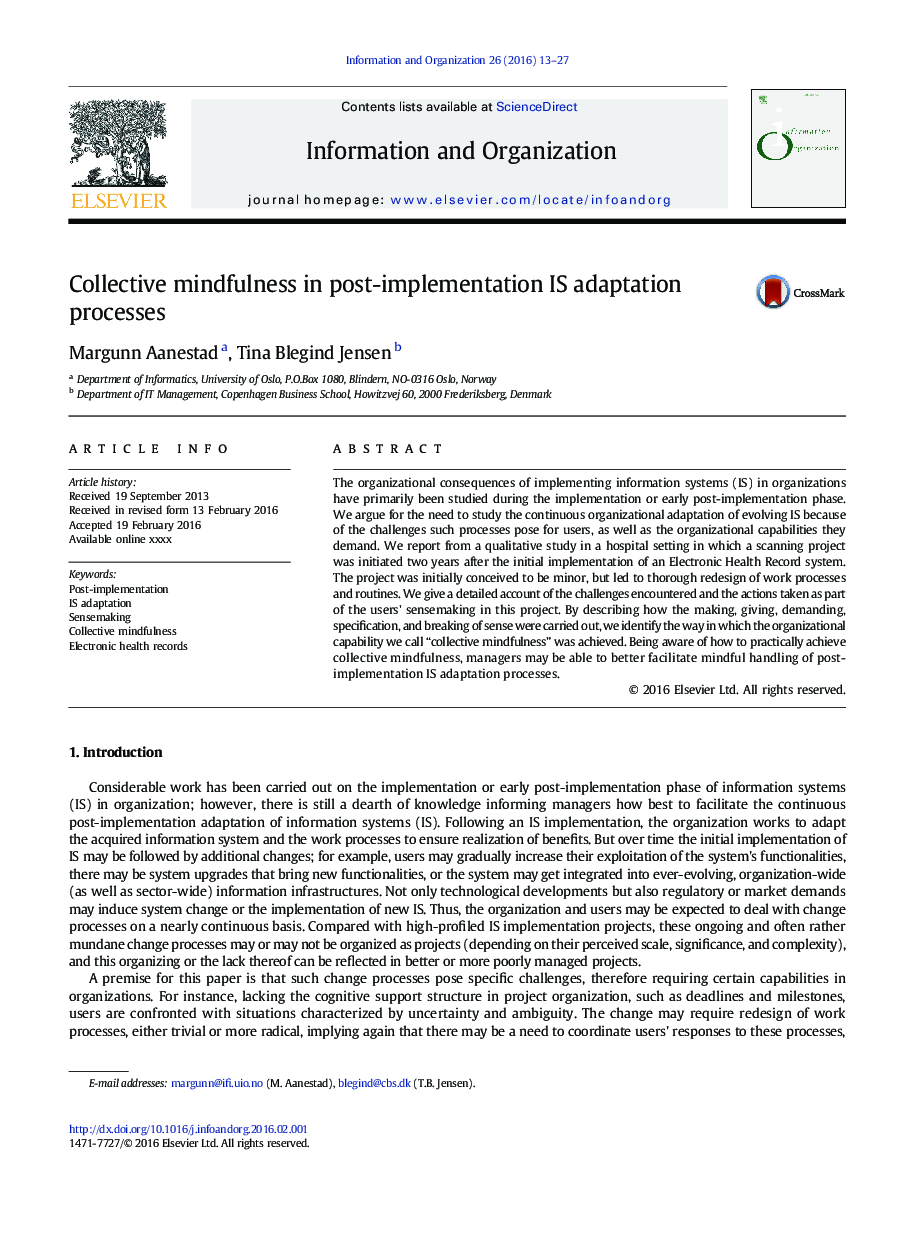| Article ID | Journal | Published Year | Pages | File Type |
|---|---|---|---|---|
| 6948937 | Information and Organization | 2016 | 15 Pages |
Abstract
The organizational consequences of implementing information systems (IS) in organizations have primarily been studied during the implementation or early post-implementation phase. We argue for the need to study the continuous organizational adaptation of evolving IS because of the challenges such processes pose for users, as well as the organizational capabilities they demand. We report from a qualitative study in a hospital setting in which a scanning project was initiated two years after the initial implementation of an Electronic Health Record system. The project was initially conceived to be minor, but led to thorough redesign of work processes and routines. We give a detailed account of the challenges encountered and the actions taken as part of the users' sensemaking in this project. By describing how the making, giving, demanding, specification, and breaking of sense were carried out, we identify the way in which the organizational capability we call “collective mindfulness” was achieved. Being aware of how to practically achieve collective mindfulness, managers may be able to better facilitate mindful handling of post-implementation IS adaptation processes.
Related Topics
Physical Sciences and Engineering
Computer Science
Information Systems
Authors
Margunn Aanestad, Tina Blegind Jensen,
